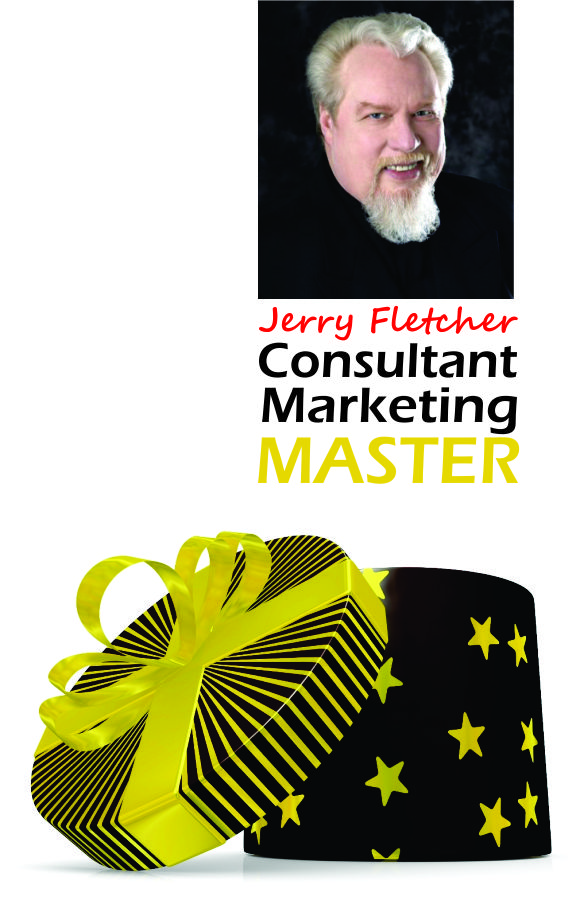
I’ve been asked to speak on Trust 4 times between now and the end of April.
I’ll be sharing information that has remained timeless along with research findings being updated now.
A Fortune Cookie
I speak on Trust because of a Fortune Cookie. After a successful morning presentation, the promoter and I decided to have lunch at a Chinese restaurant nearby. After the meal they brough us fortune cookies.
My fortune was: “The wise man knows everything, the shrewd one, everyone.”
Michael pushed his glasses down his nose. Looked over them and said, “That’s good as far as it goes.”
I’ve never forgotten his next words:
“What you know is important, who you know can make a difference…but the single most important thing in building a business is who trusts you.”
Who do you trust?
Like many business owners you immediately think of your professional advisors:
- Accountant
- Attorney
- Bookkeeper
Like Michael said, “That’s good as far as it goes.” But like so many things it shows that we are oriented to who we trust rather than who trusts us. It’s natural. It’s human. But it is not the foundation of your business.
Who trusts you?
Over the years, I’ve found that there are four folks that must trust you in order for you to be successful. Here they are in order of importance in the New Normal.
- Yourself. Second guessing yourself all the time will get you nowhere. Listening to that little voice that whispers doubt in your ear will keep you from getting things done. Trust yourself to figure things out. Trust yourself to make a plan. Trust yourself to take action.
- Your Team. If you’re a manager that means both the management team you are a part of and your direct reports. Not a manager? It is the group of folks you work with all the time which may or may not be designated as a team. Your team includes all the folks that get credit when the job is done, the objective reached, or the product is delivered.
- Your Company. Own it? Trust is essential. Just a hired hand? Trust improves outcomes. Trust lowers your stress and makes you more productive. (Stay tuned for hard numbers)
- Your Customer. No business can succeed without customer trust. That is true whether the business is a product, a service or a combination of the two. Customers will go the extra mile for you event to the point of not purchasing a competitive product to wait for yours with the same capabilities.
In today’s world of social media positive comments can maintain a reputation over time. Customer trust can give a company momentum like never before. Public reviews can turn an unknown organization into a rising star overnight.
Business Trust Statistics
85% of Americans are likely to stick with a business during a brand crisis if it has a history of being transparent.
67% Agree, “A good reputation may get me to try a product, but unless I come to trust the company behind the product, I will stop buying it.”
64% of consumers globally are belief driven buyers. This means they are willing to buy or boycott a brand because of its position on social or political issues.
The bottom line.
I was fortunate enough to meet Tony Simons of Cornell University just as his book, The Integrity Dividend was being published. In it he describes how he conducted interviews with the staff at 76 different locations of a hotel chain. Tony had the staff rate managers on six different trust factors. He found that where managers were rated highest the increase in revenue was $250,000 a year.
The oxytocin kicker.
Paul Zak, Neuroscientist, is the author of Trust Factor: The Science of Creating High-Performance Companies. He identified these eight key management behaviors that stimulate Oxytocin production and generate Trust:
- Recognize Excellence
- Induce “challenge stress” to intensify focus and strengthen social connections
- Give people discretion in how they do their work. After they are trained, allow them to execute projects in their own way.
- Enable job crafting (choice of projects by the employee)
- Share information broadly (corporate goals, strategies and tactics)
- Intentionally build relationships (for everyone involved)
- Facilitate whole person growth
- Show vulnerability (asking for help is the sign of a secure leader)
High trust versus low trust
Here’s what Zak and his researchers found:
Work performance High=106% more energy 76% more engaged 50% more productive
Loyalty High= 50% more will stay a year, 88% more recommend as a place to work
Job Satisfaction High= 60% more enjoyed job, 70% more were aligned with the company purpose 40% less burnout reported
Overall, high trust companies have employees that are more productive and innovative.
And so it goes.
Jerry Fletcher is a sought-after International Speaker, a beBee ambassador, founder and CEO of Z-axis Marketing, Inc. See Jerry’s new speaker demo reel.
His consulting practice, founded in 1990, is known for on and off-line Trust-based Consultant Marketing advice that builds businesses, brands and lives of joy.
Consulting: https://www.JerryFletcher.com
Speaking: https://www.NetworkingNinja.com

